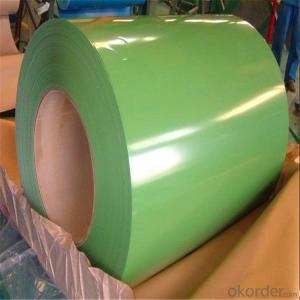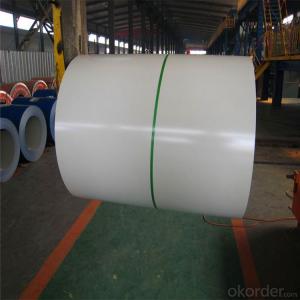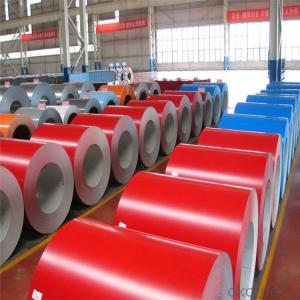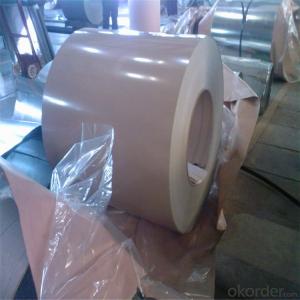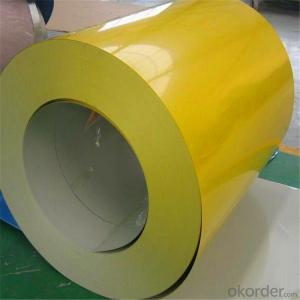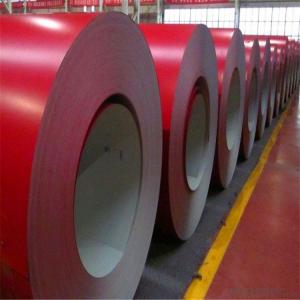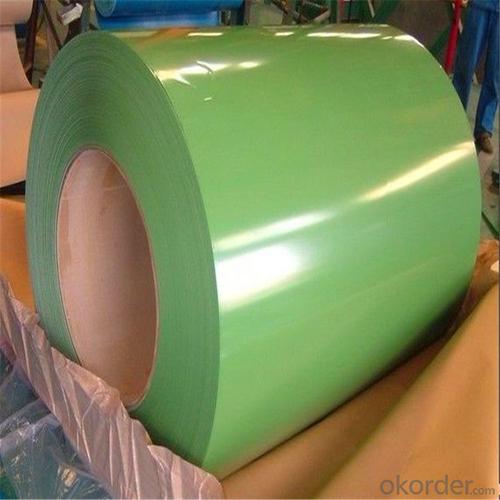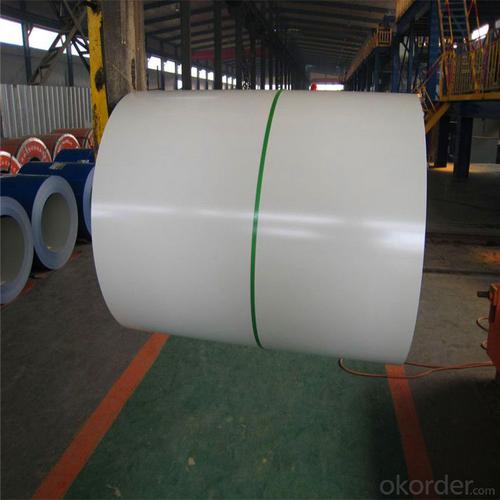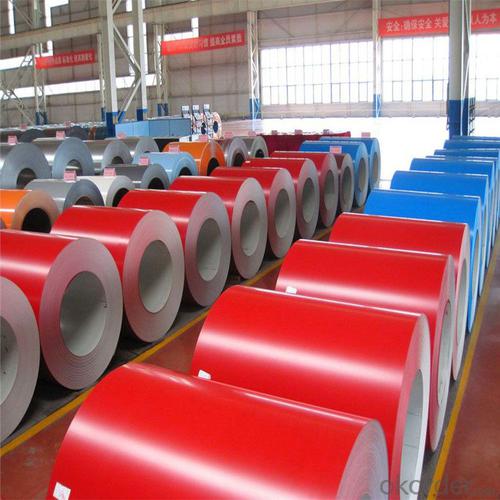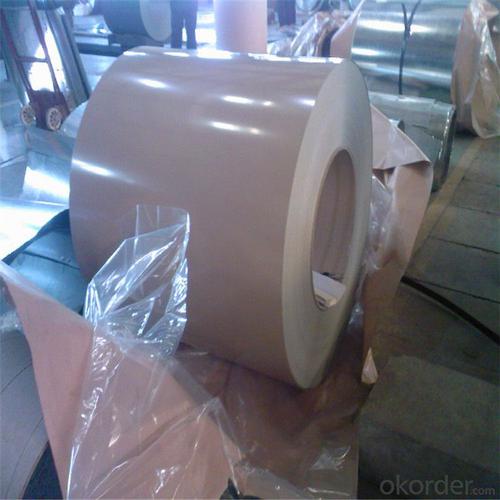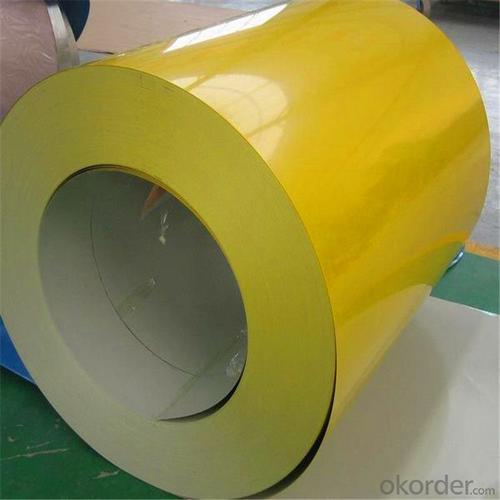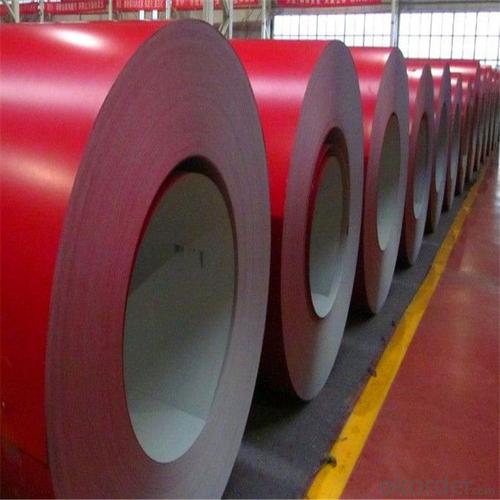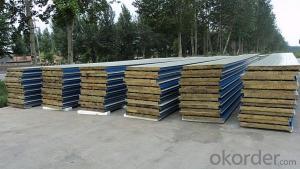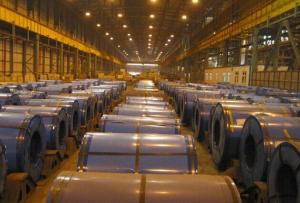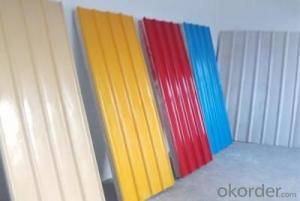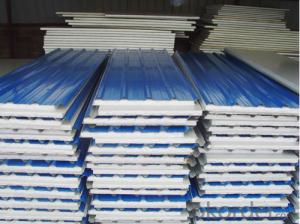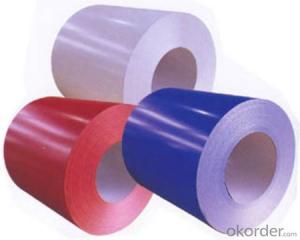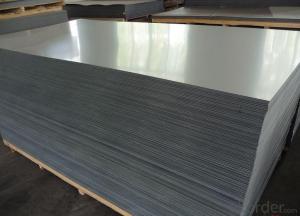G3312 Grade PPGI Steel Sheets for Roofing
- Loading Port:
- Tianjin
- Payment Terms:
- TT or LC
- Min Order Qty:
- 25 m.t.
- Supply Capability:
- 5000 m.t./month
OKorder Service Pledge
OKorder Financial Service
You Might Also Like
Specification
G3312 Grade PPGI Steel Sheets for Roofing
Description of G3312 Grade PPGI Steel Sheets for Roofing
Product | PPGI/PPGL |
Capacity | 5,000 tons/month |
Base material | Hot dipped galvanized steel |
Thickness | 0.2-2.0mm |
Width | 600-1250mm(according to your need) |
Coil Weight | 3-6tons |
Quality | SGCC, DX51D |
Color | RAL No. or customers samples’ color |
Zinc-coating | 30g/m2-180g/m2 |
Coil ID | 508mm/610mm |
Technique | Cold rolled—hot dipped galvanized—color coated |
Painting | Top painting:15~25μm |
Back painting: 6~10μm | |
Tolerance | Thickness: +/-0.02mm |
Width:+/-2mm | |
Shipment time | within 15-45 workdays |
Payment | T/T, L/C at sight |
Packing | Standard export packing |
The special order can be negotiated. | |
Application of G3312 Grade PPGI Steel Sheets for Roofing
APPLICATION OF OUR PREPAINTED STEEL | ||||||||||
Construction | Outside | Workshop,agricultural warehouse,residential precast unit | ||||||||
corrugated roof,roller shutter door,rainwater drainage pipe,retailer booth | ||||||||||
Inside | Door,doorcase,light steel roof stucture,folding screen,elevator,stairway,ven gutter,Construction Wall | |||||||||
Electrical applicance | Refrigerator,washer,switch cabnet,instrument cabinet,air conditioning,micro-wave owen,bread maker | |||||||||
Fuiniture | Central heating slice,lampshade,chifforobe,desk,bed,locker,bookself | |||||||||
Carrying trade | Exterior decoration of auto and train,clapboard,container,isolation lairage,isolation board | |||||||||
Qthers | Writing panel,garbagecan,billboard,timekeeper,typewriter,instrument panel,weight sensor,photographic equipment | |||||||||
Products Show of G3312 Grade PPGI Steel Sheets for Roofing

Product Advantages
1.With nearly 20 years experience in prepainted steel, accommodate different marketdemands. | ||||||||||||||
2.'Quality first, service first' is our business aim; 'The good faith get respect,cast quality market' is our Business philosophy . | ||||||||||||||
3.Having two series producttion line,with the abbual production capacity of 240000 tons. | ||||||||||||||
4.Exceed International ISO9001:2008&ISO14001:2004 quality and environmental standards | ||||||||||||||
5.Meet with ROHS standard |
Company Information
CNBM International Corporation is the most important trading platform of CNBM group.
Whith its advantages, CNBM International are mainly concentrate on Cement, Glass, Iron and Steel, Ceramics industries and devotes herself for supplying high qulity series of refractories as well as technical consultancies and logistics solutions.


F A Q
1, Your advantages?
professional products inquiry, products knowledge train (for agents), smooth goods delivery, excellent customer solution proposale
2, Test & Certificate?
SGS test is available, customer inspection before shipping is welcome, third party inspection is no problem
3, Factory or Trading Company?
CNBM is a trading company but we have so many protocol factories and CNBM works as a trading department of these factories. Also CNBM is the holding company of many factories.
4, Payment Terms?
30% TT as deposit and 70% before delivery.
Irrevocable L/C at sight.
5, Trading Terms?
EXW, FOB, CIF, FFR, CNF
6, After-sale Service?
CNBM provides the services and support you need for every step of our cooperation. We're the business partner you can trust.
For any problem, please kindly contact us at any your convenient time.
We'll reply you in our first priority within 24 hours.
- Q: How are tool steels used in the manufacturing of cutting tools?
- Tool steels are used in the manufacturing of cutting tools due to their excellent hardness, toughness, and wear resistance. These steels are specifically designed to withstand high temperatures, pressures, and repeated impacts during cutting operations. They are used to make various cutting tools like drills, milling cutters, saws, and blades. The high hardness of tool steels allows them to retain their sharpness for longer periods, ensuring efficient cutting performance. Additionally, their toughness helps withstand the mechanical stresses encountered during cutting, while their wear resistance enables them to maintain their cutting edges even after prolonged use. Overall, tool steels are crucial in the manufacturing of cutting tools, enabling precise and efficient material removal processes in various industries.
- Q: Can special steel be used in the pharmaceutical manufacturing equipment manufacturing industry?
- Yes, special steel can be used in the pharmaceutical manufacturing equipment manufacturing industry. Special steel offers several advantages such as resistance to corrosion, high strength, and durability, making it suitable for various applications in pharmaceutical manufacturing equipment. It ensures the hygienic and safe production of pharmaceutical products, meeting the industry's specific requirements and regulations. Additionally, special steel's ability to withstand extreme temperatures and harsh chemicals makes it a valuable material for manufacturing equipment used in pharmaceutical processes.
- Q: What are the different types of special steel?
- There are several types of special steel, including stainless steel, tool steel, alloy steel, and high-speed steel. Each type has unique properties and characteristics that make them suitable for specific applications. Stainless steel is corrosion-resistant and commonly used in kitchen utensils and construction materials. Tool steel is known for its hardness and used in cutting tools and dies. Alloy steel contains additional elements to enhance strength, toughness, and wear resistance, often used in automotive and construction industries. High-speed steel is designed to withstand high temperatures and used in cutting tools and drill bits.
- Q: What are the different methods for improving the magnetic properties of special steel?
- There are several methods for improving the magnetic properties of special steel, including annealing, alloying, and heat treatment. Annealing involves heating the steel to a specific temperature and then slowly cooling it, which helps to refine the grain structure and reduce magnetic losses. Alloying is another method, where specific elements like nickel or cobalt are added to the steel to enhance its magnetic properties. Heat treatment is also commonly used, involving controlled heating and cooling processes to alter the microstructure and improve magnetic performance.
- Q: How does special steel contribute to reducing product failure?
- Special steel contributes to reducing product failure in several ways. Firstly, special steel is known for its superior strength and durability, which makes it less prone to breakage or deformation under stress. This ensures that products made with special steel can withstand heavy loads or harsh environments without failing. Additionally, special steel often has enhanced corrosion resistance properties, protecting products from rust or degradation over time. This helps to extend the lifespan of the product and reduce the chances of failure due to corrosion. Furthermore, special steel can be tailored to specific applications, allowing manufacturers to choose the right type of steel with the required characteristics for their products. Whether it's high temperature resistance, excellent wear resistance, or improved toughness, special steel can be customized to meet the specific demands of a product, reducing the likelihood of failure in its intended use. In summary, special steel's superior strength, corrosion resistance, and customizable properties make it an essential material in industries where product failure is a critical concern, ultimately contributing to reducing the risk of failures and enhancing overall product reliability.
- Q: How does special steel perform in corrosive environments?
- Special steel is specifically designed to perform exceptionally well in corrosive environments. It is resistant to corrosion caused by various factors such as moisture, chemicals, and high temperatures. This type of steel typically contains higher levels of alloying elements such as chromium, nickel, and molybdenum, which enhance its corrosion resistance properties. Additionally, special steel undergoes specific heat treatments and surface finishes to further improve its resistance to corrosion. Overall, special steel exhibits excellent performance and longevity in corrosive environments, making it a preferred choice in industries such as oil and gas, chemical processing, marine, and construction.
- Q: What are the main factors affecting the corrosion fatigue strength of special steel?
- The corrosion fatigue strength of special steel is influenced by several factors. Firstly, the composition of the steel plays a crucial role. Special steels typically contain various alloying elements such as chromium, nickel, molybdenum, and copper, which enhance their corrosion resistance. The presence and amount of these elements can significantly affect the corrosion fatigue strength of the steel. Higher levels of alloying elements generally improve the resistance to corrosion fatigue. Secondly, the surface condition of the steel is important. Any surface defects, such as scratches, pits, or roughness, can act as stress concentrators and accelerate the initiation and propagation of corrosion fatigue cracks. Additionally, the presence of surface contaminants, such as dirt, grease, or salts, can increase the corrosive environment and reduce the corrosion fatigue strength of the steel. Thirdly, the environmental conditions in which the steel is exposed play a significant role. Corrosion fatigue occurs due to the combined action of cyclic loading and a corrosive environment. Factors such as temperature, humidity, pH, and the presence of corrosive substances like saltwater or chemicals can accelerate the corrosion process and reduce the fatigue strength of the steel. Furthermore, the mechanical properties of the steel, such as its hardness, strength, and ductility, also influence its corrosion fatigue strength. Higher strength and hardness can enhance the resistance to fatigue crack initiation, while greater ductility can improve the resistance to crack propagation. However, excessive hardness or brittleness can decrease the corrosion fatigue strength. Lastly, the design and manufacturing processes of components made from special steel can impact their corrosion fatigue strength. Factors such as welding techniques, heat treatment, and surface finishing can introduce residual stresses or alter the microstructure of the steel, affecting its corrosion fatigue behavior. Overall, the corrosion fatigue strength of special steel is influenced by its composition, surface condition, environmental conditions, mechanical properties, and manufacturing processes. Understanding and appropriately addressing these factors are crucial for enhancing the corrosion fatigue resistance of special steel components.
- Q: How is special steel used in the medical manufacturing process?
- Special steel is used in the medical manufacturing process for various applications such as surgical instruments, orthopedic implants, and medical devices due to its exceptional properties such as corrosion resistance, biocompatibility, and strength. It is specifically designed and manufactured to meet the stringent requirements of the medical industry, ensuring the safety and effectiveness of healthcare products.
- Q: What are the different surface coatings available for special steel?
- There are several different surface coatings available for special steel, including galvanized coatings, zinc coatings, powder coatings, epoxy coatings, and chrome coatings. These coatings provide various benefits such as corrosion resistance, improved durability, enhanced aesthetics, and increased lifespan of the steel. The choice of coating depends on the specific application and desired properties for the steel.
- Q: What are the key characteristics to consider when selecting special steel?
- When selecting special steel, there are several key characteristics that need to be considered. First and foremost is the composition of the steel. The specific elements and their proportions in the alloy play a crucial role in determining the steel's properties such as strength, hardness, and corrosion resistance. Different applications may require different compositions, so it is important to carefully evaluate the intended use and choose a composition that aligns with the desired performance. Another critical characteristic is the steel's mechanical properties. This includes factors such as tensile strength, yield strength, ductility, and toughness. These properties determine how the steel will perform under various loads and impacts, and it is crucial to select a steel with the appropriate mechanical properties for the specific application. Additionally, the steel's heat treatment capabilities should be considered. Special steels often undergo different heat treatment processes to enhance their properties. Factors such as hardenability, tempering ability, and the ability to retain hardness at high temperatures are important considerations when selecting special steel. Corrosion resistance is also a key characteristic, especially when the steel will be exposed to harsh environments or chemicals. Some special steels are designed to have excellent resistance to corrosion, making them suitable for applications in marine environments, chemical processing plants, or oil and gas industries. Other characteristics to consider include machinability, weldability, and cost. Machinability refers to the ease with which the steel can be cut, drilled, or shaped, while weldability determines how well the steel can be welded without compromising its properties. The cost of the steel is an important factor, as it should align with the budget constraints of the project. In summary, when selecting special steel, it is crucial to consider the composition, mechanical properties, heat treatment capabilities, corrosion resistance, machinability, weldability, and cost. By evaluating these key characteristics in relation to the specific application, one can make an informed decision and choose the most suitable special steel for the intended purpose.
Send your message to us
G3312 Grade PPGI Steel Sheets for Roofing
- Loading Port:
- Tianjin
- Payment Terms:
- TT or LC
- Min Order Qty:
- 25 m.t.
- Supply Capability:
- 5000 m.t./month
OKorder Service Pledge
OKorder Financial Service
Similar products
Hot products
Hot Searches
Related keywords
